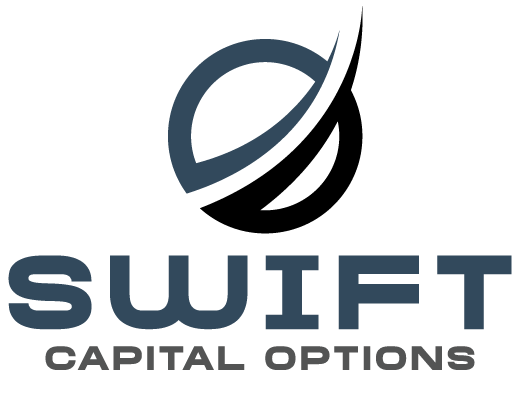SBA Loan Interest Rates: Understanding the Numbers


At Swift Capital Options, we believe that knowledge is power, especially when it comes to financing your business. One of the most crucial aspects of any loan is the interest rate, and SBA loans are no exception. In this comprehensive guide, we'll demystify SBA loan interest rates, helping you understand how they're determined and what you can expect when applying for an SBA loan.
The Basics of SBA Loan Interest Rates
Before we dive into the specifics, let's cover some fundamental points about SBA loan interest rates:
- SBA doesn't set the rates: Contrary to popular belief, the SBA doesn't directly lend money or set interest rates. Instead, they set guidelines for their lending partners.
- Negotiable within limits: Rates are negotiable between the borrower and the lender, but must fall within SBA-approved ranges.
- Variable vs. Fixed: SBA loans can have fixed or variable interest rates, depending on the loan program and terms.
- Competitive rates: Generally, SBA loan rates are competitive compared to conventional business loans, especially for borrowers who might not qualify for traditional bank financing.
Now, let's break down how interest rates are structured for different SBA loan programs.
7(a) Loan Program Interest Rates
The 7(a) loan program is the SBA's most popular offering. Here's how the interest rates are determined:
Base Rate
7(a) loans use one of three base rates:
- Prime Rate: The most common base rate, published in the Wall Street Journal
- LIBOR (One Month): London Interbank Offered Rate
- SBA Peg Rate: A weighted average of rates the federal government pays for loans with maturities similar to the average SBA loan
Interest Rate Structure
The maximum interest rate for 7(a) loans is calculated by adding a spread to the base rate:
- Loans with maturities less than 7 years:
- Up to $25,000: Base Rate + 4.25%
- $25,001 - $50,000: Base Rate + 3.25%
- Over $50,000: Base Rate + 2.25%
- Loans with maturities of 7 years or more:
- Up to $25,000: Base Rate + 4.75%
- $25,001 - $50,000: Base Rate + 3.75%
- Over $50,000: Base Rate + 2.75%
Pro Tip: These are maximum rates. Lenders may offer lower rates based on factors like your creditworthiness and business strength.
CDC/504 Loan Program Interest Rates
The 504 loan program is slightly different, as it involves two loans:
- CDC Portion (40% of the project cost):
- Interest rate is fixed and based on the current market rate for 5-year and 10-year U.S. Treasury issues, plus a small increment
- Rates are typically below market rates for similar commercial loans
- Bank Portion (50% of the project cost):
- Interest rate is negotiated between the borrower and the lender
- Can be fixed or variable
- Must be "reasonable" as determined by the SBA
Pro Tip: The fixed rate on the CDC portion can be a significant advantage in a rising interest rate environment.
Microloan Program Interest Rates
For the Microloan program, which provides loans up to $50,000:
- Rates are negotiated between the borrower and the intermediary lender
- The maximum rate is the intermediary's cost of funds plus 8.5%
- Rates typically range from 8% to 13%
Pro Tip: While these rates may seem high compared to other SBA loans, they're often more favorable than other financing options available to very small businesses or startups.
Factors Affecting Your Interest Rate
While the SBA sets maximum rates, your actual rate will depend on several factors:
- Credit score: A higher credit score generally results in a lower interest rate
- Business financials: Strong revenue and cash flow can help secure better rates
- Loan amount and term: Larger loans and shorter terms may qualify for lower rates
- Collateral: Secured loans often have lower rates than unsecured loans
- Industry: Some industries are considered higher risk and may face higher rates
- Economic conditions: Overall market conditions can influence base rates
Fixed vs. Variable Rates: Pros and Cons
SBA loans can come with fixed or variable rates. Here's a quick comparison:
Fixed Rates
Pros:
- Predictable payments
- Protection against rising interest rates
Cons:
- Initially higher than variable rates
- No benefit if market rates decrease
Variable Rates
Pros:
- Initially lower than fixed rates
- Potential for lower payments if market rates decrease
Cons:
- Less predictable payments
- Risk of higher payments if market rates increase
Pro Tip: Consider your risk tolerance and long-term financial planning when choosing between fixed and variable rates.
How to Get the Best Rate
While you can't control all factors affecting your interest rate, here are some steps to improve your chances of securing a favorable rate:
- Improve your credit score: Pay down debts and resolve any credit issues before applying
- Strengthen your business financials: Demonstrate strong revenue and cash flow
- Prepare a solid business plan: Show lenders you have a clear path to growth and profitability
- Shop around: Different lenders may offer different rates within SBA guidelines
- Consider a larger down payment: This can sometimes help secure a lower rate
- Opt for a shorter loan term: Shorter terms often come with lower rates
Understanding the True Cost of Your Loan
Remember, the interest rate is just one part of the overall cost of your loan. Also consider:
- Fees: SBA loans come with guarantee fees and may have other associated costs
- Term length: A longer term means more interest paid over time, even at a lower rate
- Prepayment penalties: Some loans may penalize early repayment
Pro Tip: Ask for an Annual Percentage Rate (APR) to get a more comprehensive view of the loan's cost.
How Swift Capital Options Can Help
Navigating SBA loan interest rates can be complex, but you don't have to do it alone. At Swift Capital Options, we're here to help you secure the best possible financing for your business. Here's how we can assist:
- Rate comparison: We'll help you compare rates from multiple SBA-approved lenders
- Application optimization: We'll work with you to strengthen your loan application, potentially qualifying you for better rates
- Term structure advice: We'll help you understand the implications of different loan terms and structures
- Market insights: We'll provide up-to-date information on market trends affecting SBA loan rates
- Negotiation support: We'll assist in negotiations with lenders to help you secure the best possible rate
Your Next Steps: Securing Your Ideal SBA Loan
Now that you understand how SBA loan interest rates work, it's time to take action:
- Assess your credit score and business financials
- Determine which SBA loan program best fits your needs
- Start gathering documentation to support your loan application
- Reach out to Swift Capital Options for personalized guidance on securing the best possible rate
Remember, while a low interest rate is important, it's just one piece of the puzzle. The right SBA loan should align with your overall business goals and financial strategy.
Ready to explore your SBA loan options and secure a competitive interest rate? Contact Swift Capital Options today, and let's work together to find the financing solution that will help your business thrive. With our expertise and your vision, we'll navigate the world of SBA loan interest rates to find the best fit for your unique needs!




